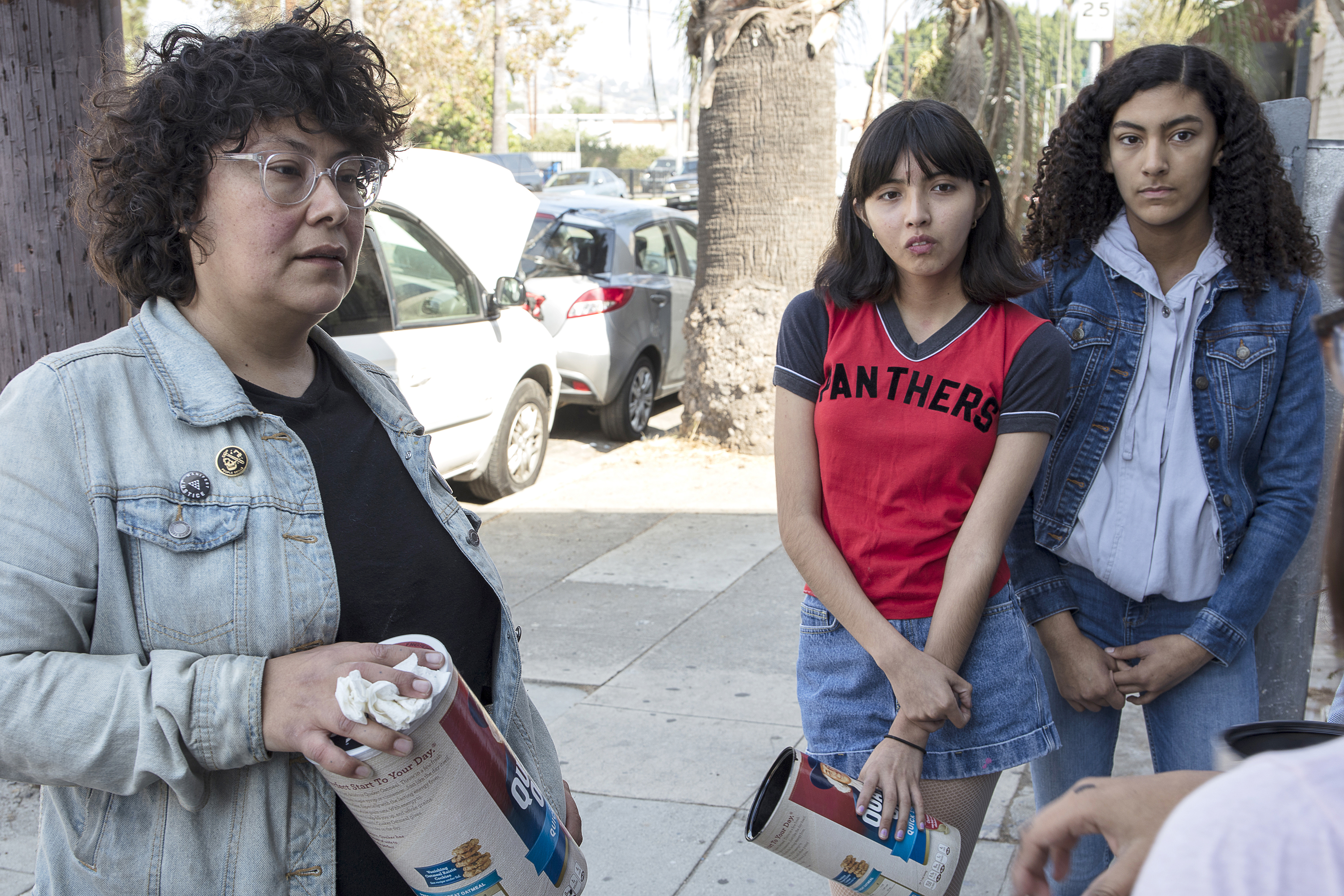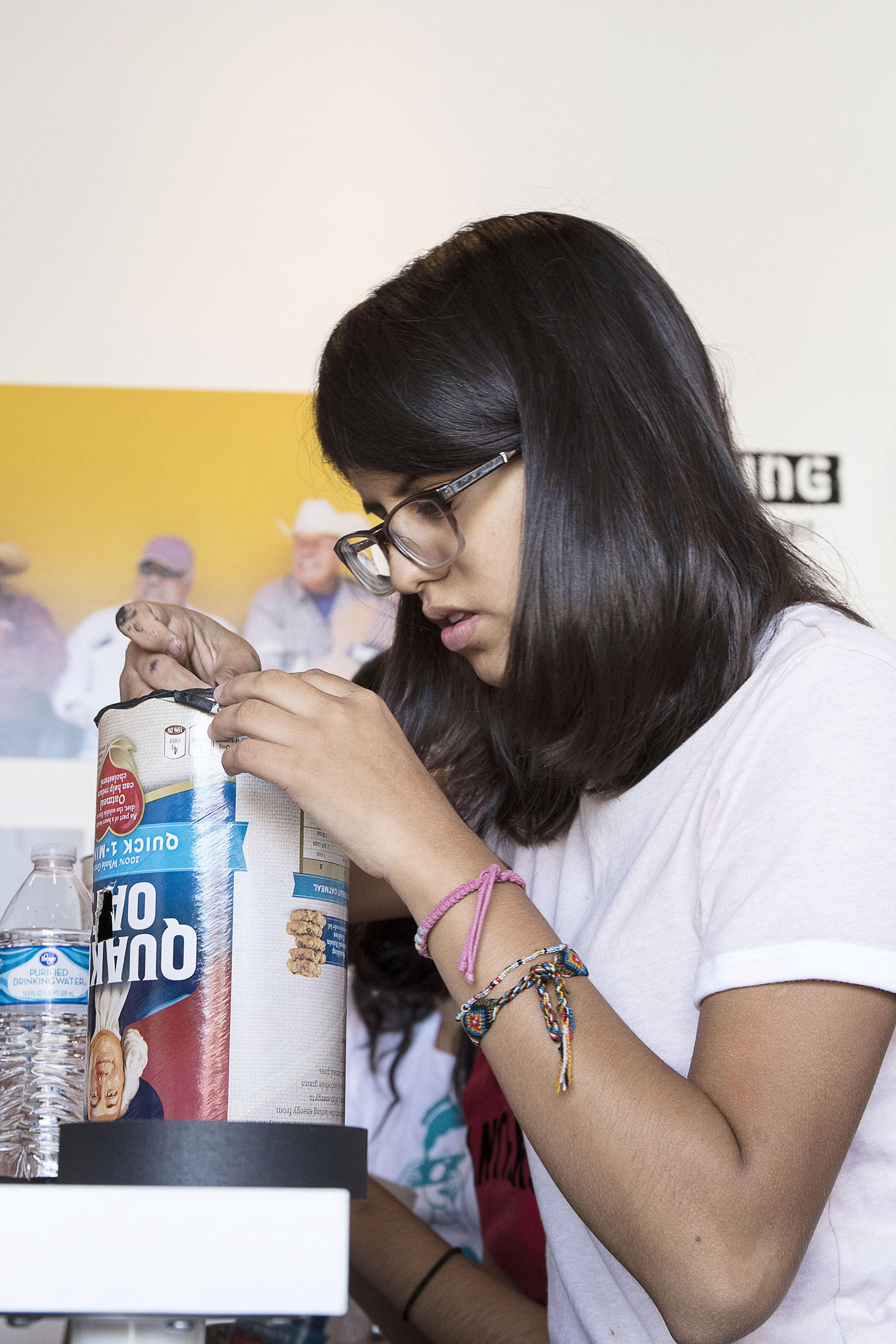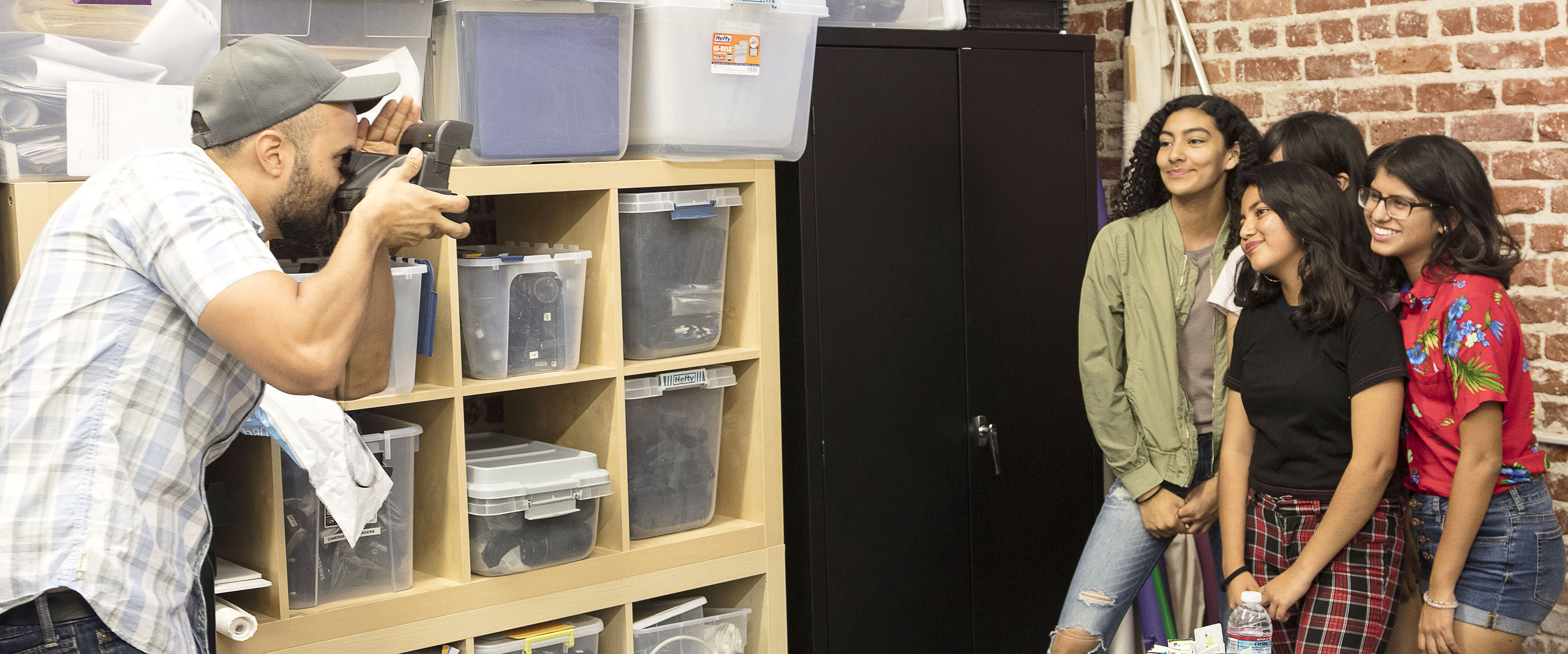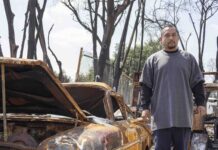A row of oatmeal canisters was placed on a table as a group of young girls talk among themselves, laughing as they describe how their weeks went. When one of them asked what the oatmeal was for, they were surprised to hear the canisters will become their cameras for the semester, which would be odd for many teens growing up in the digital age. But behind the follow-up questions is a sense of desire in these young girls to learn more.
Las Fotos Project, a non-profit organization located in Lincoln Heights, helps young girls develop their creativity and talent with one-on-one mentoring in photography and multimedia. While also encouraging self-confidence and collaboration through the cultivation of a sisterhood.
“We have had girls who have chosen photography as a career because of what they’ve experienced at Las Fotos,” said Las Fotos Program Manager Laura Gonzalez. “This is definitely something that is making them think about photography as a professional career, and we have girls who are really talented and amazing photographers.”
Founded in 2010 by Eric B. Ibarra, the organization materialized because he believed the need for more programs that would focus on teaching a skill would help young Latinas in Los Angeles with self-confidence while forging a path toward a career.
“I did my first Las Fotos Project in the summer of 2010,” Ibarra said. “I partnered with another non-profit organization called Para Los Niños, and I facilitated a summer photography camp for teen girls.”
While doing research on organizations with photography programs, Ibarra was inspired to create Las Fotos after coming across the documentary film “Born into Brothels: Calcutta’s Red Light Kids.” In the documentary, photographer Zana Briski offered to teach the children of prostitutes photography after befriending them.
“I wanted to create my own version of that in L.A. where I was living, and that’s how everything came about,” Ibarra said.
In its humble beginnings, Las Fotos didn’t own a permanent place, so Ibarra and other early volunteers had to hold their meetings and classes at schools or other temporary locations.
The organization was able to purchase a room last year, which allowed for new programs as well as a place where everyone can meet and a gallery to showcase the work of its students.
“When we got the space in Lincoln Heights, we wanted the space to be a place where the girls can come and hang out. We want them to really take ownership of the space,” Gonzalez said. “We built a darkroom this semester, and we’re going to have film classes, which is very exciting.”
With a new gallery and the addition of a darkroom, the organization can now hold more classes and introduce their students to new aspects of photography, such as pinhole photography on cameras made from oatmeal canisters.
Managing a nonprofit can be a challenge for any new organization because there are basic bills such as utilities, rent and teachers to be paid. Though there is money out there in the form of philanthropic donors and organizations, taking the time to fill out applications and proposals takes a lot of effort.
“Early on from a personal perspective, I wasn’t very involved in nonprofits and understanding management, development and fundraising. That’s all stuff that I had to learn through trial and error,” Ibarra said. “I didn’t come from the nonprofit world, so having to identify foundations and eventually building a base of individuals who want to support our work, was probably the biggest learning curve.”
Eventually, Ibarra was able to partner with other nonprofits and learn from them. In 2011, Ibarra applied for fiscal sponsorship to Community Partners, where they focused on growth, and that allowed Ibarra to worry less about the administrative issues.
Though Las Fotos’ students are all teen girls, that wasn’t always the case. Early on, boys were introduced to the program. But eventually a shift happened, which proved to be beneficial to the dynamics of what the project is today.
“Boys were introduced to the program, and we shared a space with them. When the boys were around, the vulnerability in the stories the girls shared, they felt uncomfortable, and it shifted a bit,” Ibarra said. “So, from that point, it kind of just naturally turned into a project that focused on young women, and, over time, I learned that there was a need for these types of programs for girls in L.A. because there weren’t many examples.”
That change in dynamics, along with the emphasis of women mentoring teen girls, helped the girls of Las Fotos naturally transition and mature during that difficult time of growing pains many teens experience.
“Before I came, I was very very shy, but the mentors have really helped me,” said 16-year-old Nathali Diaz. “When I meet friends here, they’ve all had different experiences, and they’re able to share that with me. If I meet someone who’s completely the opposite of me, who’s very outgoing and passionate, it’ll rub off on me.”
Toward the end of 2016, the political spectrum in this country saw a shift that can best be described as polarizing. Americans are now having conversations about issues such as immigrant, gender and women’s rights.
“It’s important that our voices be heard to remind people that you need to be yourself because this world will quickly change you,” said Alyssa Garcia, teaching artist for the Digital Promotores program of Las Fotos. “It’s huge for our future and the future of their communities, their self esteem and self acceptance, especially in our political times.”
If walls could speak, the walls of the Las Fotos gallery would tell the stories of the communities where these teen girls live. Photographs of a family hanging out on the porch of their home on a summer afternoon. A woman, proudly posing, wearing an intricate native headdress and costume just before she dances for a protest. And the neighborhood paletero man who comes through roughly around the same time every day, ringing his bell to let the kids know he’s around to sell his refreshing ice cream on a hot day.
Without the mentorship and services that Las Fotos provide to these girls, such stories would only be known to the people involved. But because of the transformative power Las Fotos gives the girls, these stories are spotlighted and given its moment.
“Before I came across Las Fotos, I thought, ‘Pictures are nice, but why would I do it?’” Marisabel Perez said.
Perez, a former student of Las Fotos, is now a freshman at the University of California, Irvine.
“I’ve grown as a photojournalist and as a person, and photography has allowed me to be more expressive, and I now find ways to tell stories in my photographs.”






